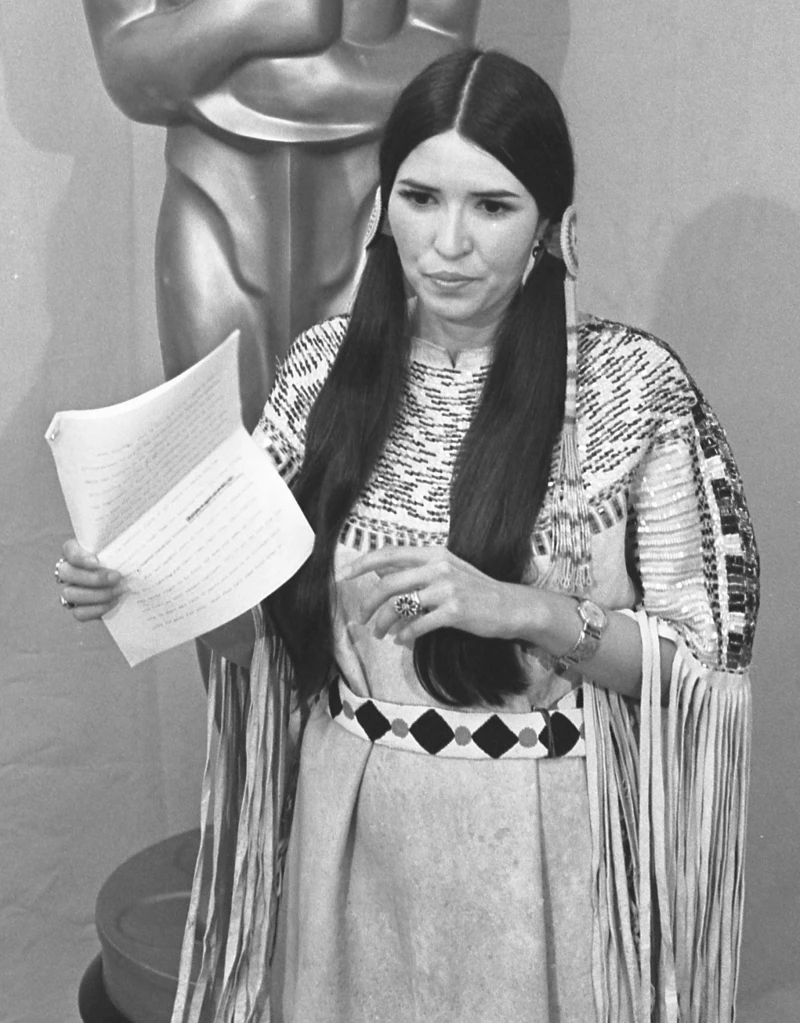(Guest post by Greg Forster)
As world events are reminding us right now, nothing is more appealing to us – to all of us – than a really compelling story. The stories we tell ourselves shape the inner world that we mentally live in, and in doing so, ultimately shape not only who we are as individuals but the social world we live in together. No service is more valuable to the world than that of getting our stories straight.
A while back I stumbled across the amazing story of Richard Montañez. The moment I read it, I immediately put him down on my list of future Al nominees. And pretty high on the list, too. How could I not nominate for The Al a man who, while working as a janitor for Frito-Lay, noticed that he and his Hispanic co-workers did not themselves tend to buy Frito-Lay products because none appealed to their tastes, and came into work with his own home-brewed recipe for a new super-spicy Cheeto and sold it to the corporate execs, bringing the world what would become Flamin’ Hot Cheetos?
I mean, if the story of how Al became Al is that he brought the world spicy chicken, how much more Al is story of the man who brought the world spicy Cheetos?
Part of what was so compelling about Montañez’s story was simply that he is so good at telling it. He was raking in speaking fees of up to $50,000 and writing multiple bestselling memoirs, recounting his janitorial days when he would come into work with little sandwich bags filled with Cheetos he had doctored in his home kitchen/laboratory; how word began getting around and he unexpectedly landed an audience with the bigshots; how some at Frito-Lay weren’t happy that a Hispanic janitor was getting out of line and disrupting the corporate suite with his ideas.

I wasn’t the only one who noticed Montañez’s story. The professional storytellers in Hollywood did, too. They sunk millions into a full-dress movie, with stars and everything, to tell Montañez’s story.
But a funny thing happened to Montañez’s story. This year, the movie Flamin’ Hot was released, not in theaters, but on streaming. And it got no buzz, disappearing quickly into the bottomless miasma of the streaming library.
Why? Because the publicity for Flamin’ Hot declares that Montañez’s story is “a true story.”
And it isn’t.
We know this thanks to one of the other people who was impressed when he first heard Montañez’s story: Sam Dean. A journalist for the Los Angeles Times, Dean had even promoted Montañez when writing about Hispanics in the world of food. But Dean is cut from the same cloth as Al winner Hunter Scott and nominee Ryan Petersen, and actually did what reporters are supposed to do: shoe-leather reporting.
Late last year, as Flamin’ Hot was making its way toward what would have been a blockbuster debut, Dean published a blockbuster of his own – a profile of Montañez with a title that doesn’t beat around the bush: “The Man Who Didn’t Invent Flamin’ Hot Cheetos.”
Interviewing former Frito-Lay employees and checking public records, Dean pieced together the true story: “Flamin’ Hots were created by a team of hotshot snack food professionals starting in 1989, in the corporate offices of Frito-Lay’s headquarters in Plano, Texas. The new product was designed to compete with spicy snacks sold in the inner-city mini-marts of the Midwest. A junior employee with a freshly minted MBA named Lynne Greenfeld got the assignment to develop the brand – she came up with the Flamin’ Hot name and shepherded the line into existence.”
Montañez’s story was an elaborate self-promoting grift, much like that of the “fictional autobiography writer Rigoberta Menchu” whose Nobel peace prize helped launch The Al.
Frito-Lay, for obvious reasons, had not been eager to publicly contradict Montañez’s story. But when Dean showed up with the receipts, they finally issued a statement: “None of our records show that Richard was involved in any capacity in the Flamin’ Hot test market….We have interviewed multiple personnel who were involved in the test market, and all of them indicate that Richard was not involved in any capacity in the test market….That doesn’t mean we don’t celebrate Richard, but the facts do not support the urban legend.”
Frito-Lay could take a lesson in how to stand by your people and your products from Al nominee Adam Butler at Kraft-Heinz, but that’s for another day.
While Dean’s story is the one that has unfolded this year, I simply couldn’t give him the nomination without also honoring another journalist, Jacqueline Keeler of the San Francisco Chronicle, who a year earlier took down an even more important fraud. The title of her profile is as subtle and circumlocuitous as that of Dean’s: “Sacheen Littlefeather Was a Native American Icon; Her Sisters Say She Was an Ethnic Fraud.”
In 1973, the founder of NAMBLA won an Academy Award for his performance as Vito Corleone in The Godfather. He refused to receive the award himself, and sent “Sacheen Littlefeather” to accept it on his behalf. As Keeler writes: “Claiming Apache heritage, she spoke eloquently, to a backdrop of boos, of the mistreatment of Native Americans by the film industry and beyond.” She spent the rest of her life speaking in this role on the abuse of Native Americans by Hollywood.
And apparently she was well qualified to lecture Hollywood about misrepresenting Native Americans! Keeler put in the shoe leather to prove that Marie Louise Cruz – “Sacheen Littlefeather” – had no Native American ancestry. Keeler’s extensive research traces Cruz’s invention of her false identity and shows that her specific claims are contradicted by tribal records.
Her biological sisters, Rosalind Cruz and Trudy Orlandi, confirmed this to Keeler, expressing anger at their sister’s betrayal of her Mexican ancestry: “I mean, you’re not gonna be a Mexican American princess,” Orlandi said to Keeler. “You’re gonna be an American Indian princess. It was more prestigious to be an American Indian than it was to be Hispanic in her mind.”
The problem with the new world being created by wokeness is not the desire to reexamine the world we have inherited with a critical eye. The problem is not even the radical commitment to overturn existing institutions where justice requires it. The problem is that the elite class who have gained power through the rhetoric of wokeness are firmly committed to the view that facts don’t matter – that there is no “truth” other than the stories we tell ourselves (“narratives,” if you want to sound hifalutin) and that the only test of whether a story is true is whether it serves our moral purposes.
Ultimately, this reduces to: “If acting on a belief produces the kind of world you want, the belief is true.”
Truth and falsehood are thus determined solely by our wishes – ultimately, by the barrel of a gun.
And the thing that the woke have, almost without exception, refused to realize is that once we get rid of the old idea that “truth” involves correspondence to objective reality, this lowering of the epistemic guardrails will not weaken – it will greatly strengthen – the atavistic darkness of the far Right. There is nothing at all stopping racists, misogynists, nationalists, etc. from building a world based on brutally enforced conformity to “narrative” in exactly the same way the woke do. That has always been the nature of their enterprise. How thoughtful of the woke to roll out the red carpet for them.
Commitment to truth as correspondence to objective reality was never a mask for reactionary power. It was in fact revolutionary – the only true wokeness, the only revolutionary spirit worthy of the name – and that not by happenstance but by logical necessity. Commitment to truth as correspondence to reality cannot be reactionary; it must always inspire revolution, and only it can inspire a revolution worth having.
The signal service Keeler and Dean provide by their willingness to stand firm against fashionable narratives that everyone in their social world wants to be true is to help rebuild the guardrails that protect the humane things – the good, the true and the beautiful, which constitute the ultimate revolutionary agenda – from the nihilistic abyss.



